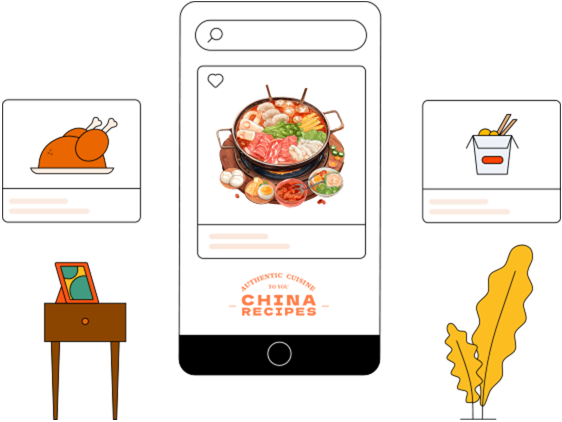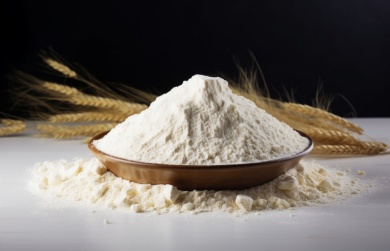Looking to cut carbs? Here's which potato is lowest in carbs
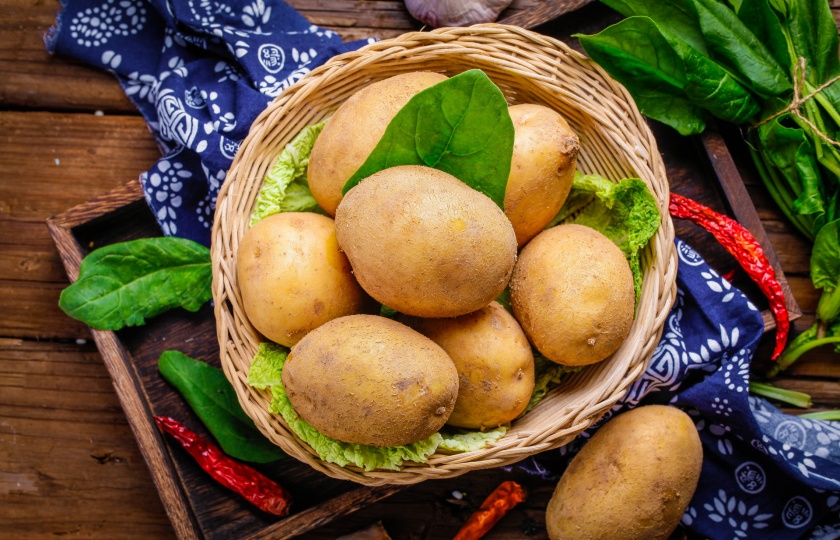
If you are a fitness enthusiast or someone who is on a diet, you should strictly control your carbohydrate intake in life. So which kind of potato has the lowest carbohydrate content? Let's explore it today!
Which potato is lowest in carbs?
As we all know, the carbohydrates in potatoes mainly exist in the form of starch. The carbohydrate content of every 100 grams of potatoes is roughly between 15 - 20 grams. Different varieties of potatoes have different carbohydrate contents. The specific situation is as follows:
Red-skinned potato: The carbohydrate content of red-skinned potatoes is moderate. About 15 - 16 grams of carbohydrates are contained in every 100 grams of red-skinned potatoes. However, the glycemic index of red-skinned potatoes is relatively low. Therefore, for those who want to control carbohydrate intake, red-skinned potatoes are a good choice.
Purple potato: The carbohydrate content of purple potatoes is similar to that of red-skinned potatoes. About 16 - 17 grams of carbohydrates are contained in every 100 grams of purple potatoes. Purple potatoes are rich in antioxidant substances and are suitable for some people who control carbohydrate intake.
Small potato (mini potato): The carbohydrate content of small potatoes is similar to that of red-skinned potatoes. About 16 - 17 grams of carbohydrates are contained in every 100 grams. Small potatoes are relatively small in size. When eaten with the skin, more dietary fiber can be ingested, which is helpful for controlling blood sugar.
Relatively speaking, potatoes with higher carbohydrate content:
White potato: The carbohydrate content of white potatoes is slightly higher. About 17 - 18 grams of carbohydrates are contained in every 100 grams of white potatoes. Because white potatoes have a relatively high starch content.
Sweet potato: Sweet potatoes have a relatively high carbohydrate content, about 20 grams per 100 grams. Their carbohydrate content is higher than that of ordinary potatoes.
If you are looking for potatoes with a lower carbohydrate content, red-skinned potatoes, purple potatoes and small potatoes (mini potatoes) are the most suitable choices. Their carbohydrate content is usually 15 - 17 grams/100 grams, which is relatively low. In contrast, white potatoes and sweet potatoes have a higher carbohydrate content and it is best to eat them in moderation.
Can I eat a small potato on keto?
Potatoes are not recommended on a ketogenic diet.
You should know that about 16 - 17 grams of carbohydrates are contained in every 100 grams of small potatoes. Although the carbohydrate content of small potatoes is slightly lower than that of large potatoes, they still belong to high-carbohydrate foods.
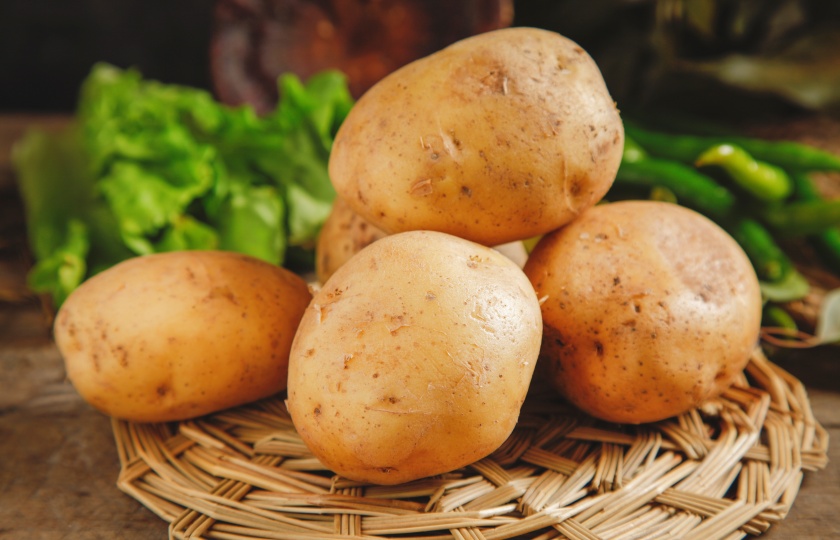
The core of a ketogenic diet is to strictly control carbohydrate intake to ensure the body's ketosis state. Eating a small potato may exceed your daily carbohydrate limit. In order to maintain ketosis, it is still recommended to avoid ingesting a large amount of carbohydrates as much as possible. This is why potatoes are usually not recommended for consumption on a ketogenic diet.
If you really like the taste and texture of potatoes but don't want to disrupt the ketogenic diet, you can consider some low-carbon alternatives. For example:
Cauliflower: Cauliflower is a low-carbon food and is often used to make "cauliflower mashed potatoes" or "cauliflower fried rice". Its texture and taste are similar to potatoes and it is suitable for use in a ketogenic diet.
Zucchini: Zucchini can also be used instead of potatoes to make "zucchini mashed potatoes" or to make low-carbon potato stir-fries.
Radish: White radish and red radish are also low-carbon alternatives. They have a similar texture to potatoes when cooked and can be made into stir-fries or roasted dishes.
Does cooking potatoes remove carbs?
Boiling potatoes has no effect on the carbohydrate content of potatoes.
The main component of potatoes is starch, which is the main source of carbohydrates. Usually about 15 - 20 grams of carbohydrates are contained in every 100 grams of potatoes. The specific value depends on the variety and size of potatoes.
Whether boiled, steamed or baked, the amount of starch in potatoes will not change significantly. Because potatoes will absorb water during the cooking process, but the content of carbohydrates (starch) remains basically unchanged. However, it can slightly change the structure of starch and affect the speed of digestion and absorption.
Which is better for low carb rice or potatoes?
Which is better between low-carbon rice and potatoes depends on your own needs.
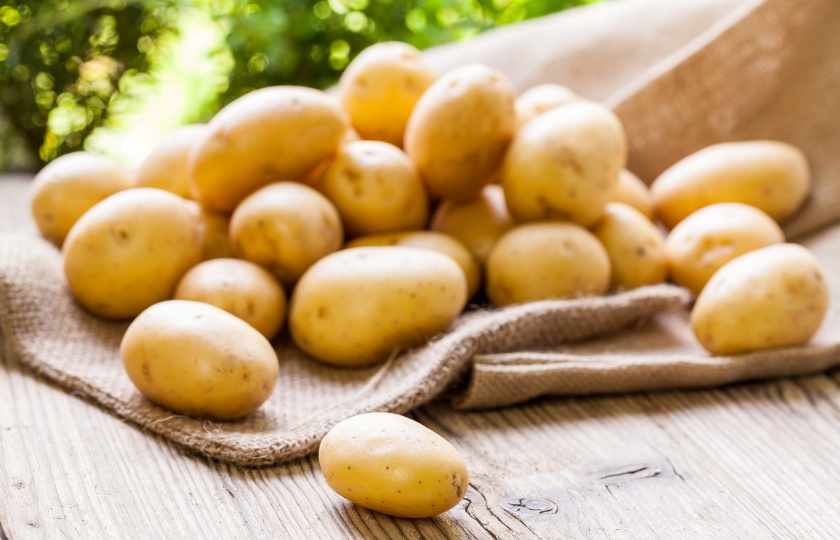
If you are controlling carbohydrate intake or on a low-carbon diet, low-carbon rice is a better choice. Because it has a low carbohydrate content, has a small impact on blood sugar, and is rich in fiber, it is suitable for weight loss or diabetic patients.
If you do not limit carbohydrate intake, then potatoes are more nutritious food. They contain vitamin C and potassium and can provide a strong sense of fullness. However, potatoes have a relatively high carbohydrate content and a greater impact on blood sugar, so they should be eaten in moderation.
In general, which is better between low-carbon rice and potatoes depends on your dietary goals: low-carbon rice is recommended for a low-carbon diet, and potatoes are more diverse and nutritious in a normal diet.
What happens if you eat no carbs for a week?
If you don't eat carbohydrates for a week, many changes will occur in the body.
In the first few days, you may feel listless. Carbohydrates are the main source of energy for the brain. Without them, the brain is like a car without gas. There will be a feeling of grogginess. It will be difficult to concentrate. The efficiency of work or study will be reduced. And the body is also prone to fatigue. After all, daily activities also require energy.
In terms of mood, it may become irritable or depressed. Carbohydrates can help the body synthesize serotonin. Serotonin is a neurotransmitter that can make people feel pleasure. Without carbohydrates, serotonin levels will decrease and mood will be easily affected.
In terms of weight, it may decrease in the short term. This is because the glycogen stored in the body is decreasing. However, this way of losing weight is actually not healthy. And if you don't consume carbohydrates for a long time, the body will enter a "starvation mode". It will reduce the basal metabolic rate to save energy. Once you resume a normal diet, your weight is very likely to rebound.
In addition, not consuming carbohydrates will also affect gastrointestinal function. Because many carbohydrate-rich foods also contain dietary fiber. Dietary fiber can promote intestinal peristalsis. Without sufficient dietary fiber, intestinal problems such as constipation may occur.
However, some people will try a low-carbohydrate diet to improve their health or control blood sugar. But this is very different from not consuming carbohydrates at all. And it should also be implemented under the guidance of professionals.
What is the number one carb to avoid?
There is actually no absolute standard for the carbohydrates that should be avoided the most.
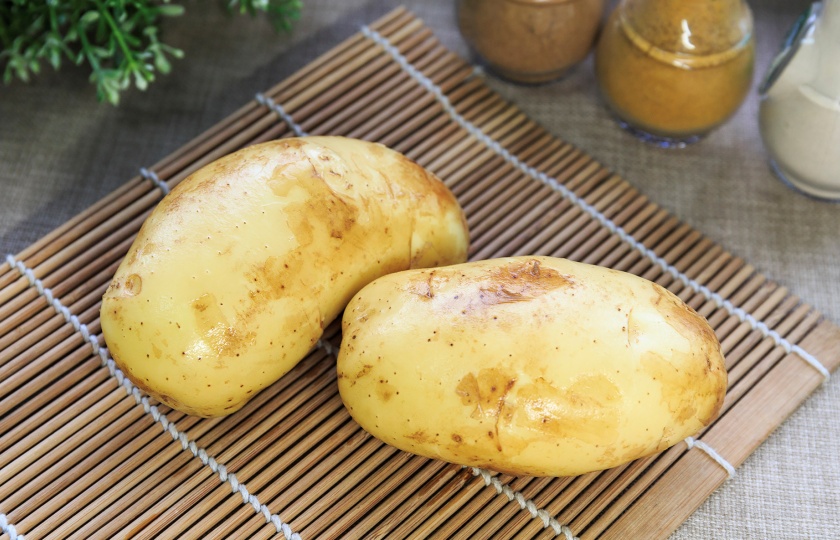
But from a health perspective, carbohydrates that are highly processed and added with a large amount of sugar and unhealthy fats should be avoided as much as possible.
For example, refined white bread, white rice and ordinary noodles. After fine processing, a lot of dietary fiber and other nutrients are lost. And they are digested and absorbed quickly, which is easy to cause a rapid rise in blood sugar.
There are also various sweet drinks, such as carbonated drinks, fruit juice drinks, etc. They contain a large amount of added sugar. This is not only "empty calories" but also increases the risk of diseases such as obesity and diabetes.
In addition, foods like fried French fries and potato chips, although they are also carbohydrates, are fried at high temperatures and contain a large amount of unhealthy oils, which are not good for the body.
Like some overly processed baked goods, such as sandwich cakes and donuts, they have very high sugar and oil contents and should also be eaten less.
However, this does not mean that we should completely avoid these foods. We just need to control the intake and choose more natural and unprocessed carbohydrates, such as whole grains, vegetables and fruits, so as to maintain a healthy diet.





